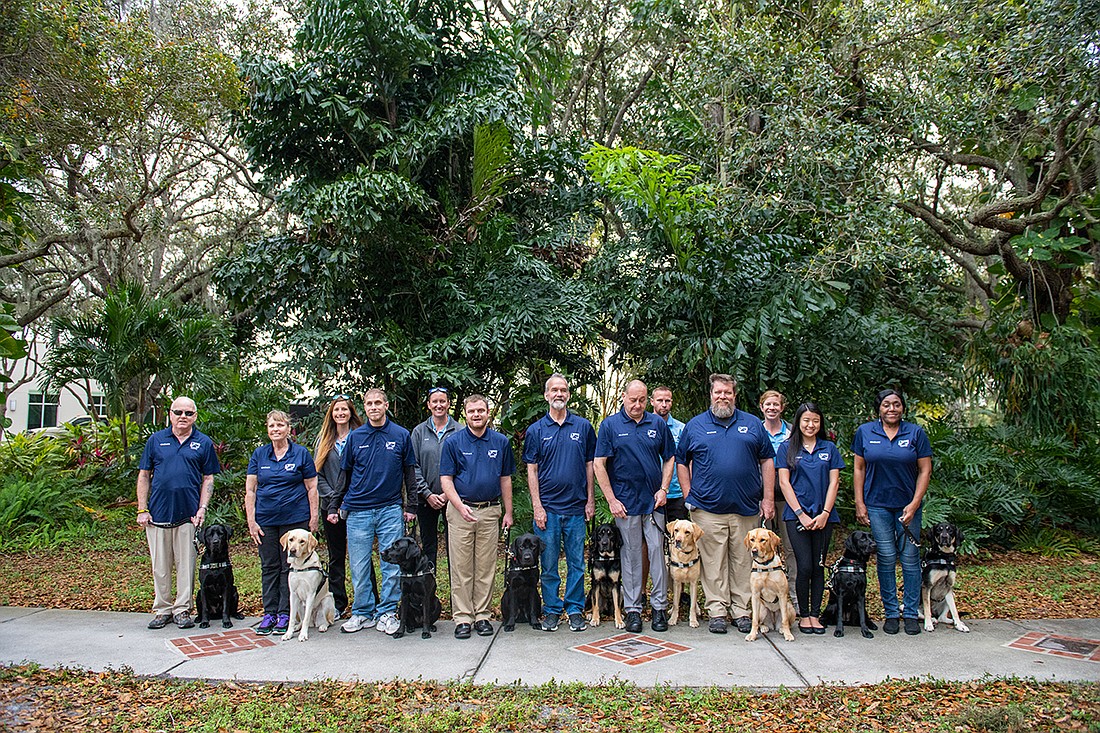- January 8, 2025
-
-
Loading

Loading

Most owners agree that the bond they share with their dog is unwavering.
Their dogs rely on their owners for food, exercise and fun. In return, the dogs offer love and happiness.
But for the nine graduates from Southeastern Guide Dogs’ 287th graduating class, the bond they share is about more than long walks and belly rubs.
Yes, they share those moments with their four-legged friend, but for them, their dog provides access to moments otherwise elusive.
For Gabby Jordan, a program graduate from Miami, one of those moments came at a shopping mall during a training session.
“I thought I would walk just a couple of stores down and come back to the group,” Jordan said during the Feb. 28 graduation at Hyatt Regency. “But I took my guide dog, Mere Bear, and we walked the entire length of the mall. At one point I remember thinking: ‘This is where life turns. This is where my journey begins.’ All of the sudden, I realized that I am happy, and I’m free.”
Three weeks earlier, the graduates traveled from Utah, Virginia, New Hampshire, Louisiana, South Carolina and all over Florida to attend a 21-day training course at the Southeastern Guide Dogs campus in Palmetto.
It’s there that the graduates learned to maneuver through everyday life with their guide dogs. From practicing how to cross the street to doing the laundry, the dogs and owners learn how to become a team.
Before they arrive, graduates go through a process designed to match the right dog for each client.
The trainers look at walking speed, personality, lifestyle and the atmosphere in which the clients live.
Then graduates are given a questionnaire where they can pick the color, energy level and gender of the dog they prefer. But sometimes, what the participant might pick doesn’t match up with what the trainers know is the right choice.
That was the case for Jeff Lowery, who is from Orlando and hoped for a large, black, male dog. Instead he received a yellow, female dog with extra energy named Quincy, something Lowery said was the right decision because she is easier for him to see at night and has helped cheer him up.
As a behavior analyst, Lowery’s job often requires him to study the mental health of convicts, some of whom would get violent with him. These encounters led to Lowery’s diagnoses of post-traumatic stress disorder, post-concussion syndrome and vision loss.
The trainers saw that Lowery would be best served by a playful guide dog like Quincy and made the connection.
Going through the process, Lowery said his friends and family continued to tell him that with the addition of Quincy, he would get his life back. But for him, he realized the process is about not only being able to do some of the tasks he once did but also being able to do them with confidence.
Lowery recounted a day that the graduates were learning to cross the street with their guide dogs. As each of them got to the crosswalk, a car would pull up, and their dogs would push back into their handler to stop them in their tracks.
“It was so scary for me, and I realized that it’s not [just] about Quincy,” Lowery said. “A lot of [the training] here at Southeastern Guide Dogs is about me understanding the areas that I’m afraid of that Quincy can now help me navigate.”